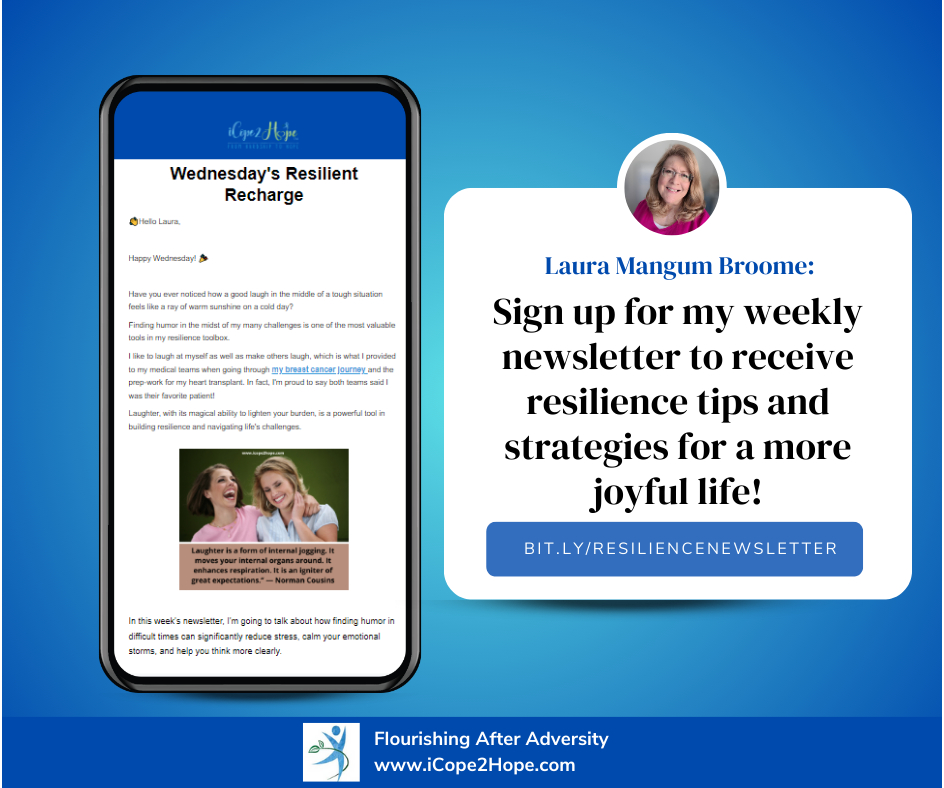Ordinary Habits: How Tiny Routines Strengthen Resilience

It was 10:24 p.m.
Karen was standing in her laundry room folding towels. The house was quiet, the day had been long, and she had no energy left. And yet—there she was, methodically folding a pile of clean towels and placing them neatly on the shelf.
Karen didn’t fold them because she was motivated.
Karen didn’t fold them because she felt strong.
Karen folded them because it was the one small thing she could do.
And in that moment, it didn’t feel like a chore.
It felt like a lifeline.
Why Routines Matter More Than Motivation
Most people think resilience comes from major breakthroughs—life-changing decisions, powerful affirmations, or grand transformations.
But here’s what I’ve discovered from my own experience:
Real resilience often shows up in the ordinary.
In the:
-
Morning cup of coffee
-
Grocery list scribbled on the back of a receipt
-
Quiet prayers whispered while driving to work
-
Sticky notes with reminders taped to the fridge
These small actions may seem unremarkable.
But in times of stress, grief, or transition, they become anchors.
Tiny Routines = Emotional Safety Nets
When life feels chaotic, unpredictable, or emotionally heavy, your nervous system craves something to hold onto.
That’s where routines come in.
They offer:
-
Predictability in an unpredictable world
-
Control when everything else feels out of control
-
Momentum when your motivation has gone missing
Routines don’t solve your problems.
But they do stabilize you so you can face them more clearly.
The Science Behind Why This Works
Your brain loves patterns. It feels safe when it recognizes familiar rhythms.
That’s why you reach for your phone automatically. Or why a bedtime ritual calms you—even when your thoughts are racing.
Neuroscience tells us that repetition builds pathways in the brain.
So when you engage in consistent, comforting routines:
-
Your stress hormones decrease
-
Your decision fatigue lessens
-
Your sense of identity stabilizes
In short, your mind says: “I know how to do this. I’ve done it before. I can do it again.”
When Life Feels Scattered, Start with Structure
During times of major upheaval—loss, divorce, caregiving, illness—it’s easy to let routines fall apart.
You might:
-
Forget to eat meals on time, or at all
-
Stop making the bed or getting out of bed
-
Stay up late scrolling because you don’t want to think
-
Lose track of days and to-do lists
This is understandable. These are signs of emotional overwhelm.
But here’s what’s hopeful:
You don’t need to rebuild everything.
You just need to restore a few things that ground you.
3 Everyday Routines That Quietly Build Resilience
Let’s talk about a few routines that seem small—but pack a big emotional punch when you’re feeling scattered.
1. The Chore Reset
Yes, the laundry. Or the dishes. Or making the bed.
These aren’t just tasks. They are signals of stability.
When you do something tangible and visible:
-
You create a sense of order
-
You remind yourself that you still have control over certain tasks
-
You feel a small sense of completion in an otherwise messy day
Try this:
-
Fold one load, not all the loads, while listening to music or a podcast
-
Wipe down one counter, not the whole kitchen
-
Lay out tomorrow’s clothes the night before
These actions may not seem “life-changing”—but when done consistently, they whisper to your brain: “You’re okay. You’re capable. You’re still here.”
2. The 3-Item Daily List
On overwhelming days, long to-do lists create pressure, not peace.
Try the 3-Item List instead.
Each morning, ask:
What 3 small things would help me feel a little more productive or grounded today?
Examples:
-
Call a friend
-
Water the plants
-
Eat lunch without multitasking
Keep it realistic. Think of it as a “life support” list—not a productivity contest.
Over time, these lists give you back:
-
A sense of direction
-
Small wins to build on
-
Confidence that grows quietly, step by step
3. The Let-It-Go List
Just as important as what you do is what you release.
Make a weekly habit of writing a “Let-It-Go” list.
Ask:
-
What expectation is draining me?
-
What worry am I obsessing over that I can’t control?
-
What guilt am I carrying that no longer belongs to me?
Examples:
-
Letting go of urgent, but not important, tasks (there is a difference)
-
Releasing the need to fix someone else’s emotions
-
Dropping the idea that healing has a deadline
This kind of emotional routine is powerful.
It teaches your brain: “We don’t carry unnecessary weight here anymore.”
Real-Life Story: The Woman Who Started With Just a Cup
I once worked with a client who was coming out of a painful divorce. She was in her 60s, living alone for the first time in decades, and overwhelmed by silence, paperwork, and unmade decisions.
She said, “I feel like I’m unraveling. I don’t even know where to start.”
So we started with this:
Make your morning coffee every day—same mug, same seat, same moment.
That’s it.
No journaling. No affirmations. Just a cup of coffee, in her favorite mug.
A week later, she told me:
“That cup of coffee helped me feel like I was still me.”
That’s what tiny routines can do.
Why Women in Midlife Especially Need These Anchors
If you’re in your 40s, 50s, or 60s, you’ve likely spent years tending to everyone else’s needs.
And now? Life might look different:
-
Your children are grown, or estranged
-
Your marriage has changed—or ended
-
Your career no longer defines you
-
Your parents may be declining—or gone
-
Your identity is shifting, and the mirror feels unfamiliar
This is a tender, sacred, and often messy time of reinvention.
But routines can hold you steady while you figure it out.
They don’t ask for transformation.
They just ask you to show up.
And that is enough.
Journaling Prompts: What Routine Could Be a Lifeline Right Now?
Take 10 minutes to write:
-
What simple routine used to make me feel more like me?
-
What part of my day feels most chaotic—and what tiny ritual could bring calm?
-
What chore or habit do I resent—but could flip, or reframe, as self-care?
And ask:
What am I trying to control through busyness that might be better handled with compassion?
Let this be a gentle inquiry, not a task list.
You’re Not Behind—You’re Rebuilding
You’re not scattered because you’re weak.
You’re scattered because life has been hard—and you’ve been trying to survive.
But now?
Now you get to rebuild—not from scratch, but from wisdom.
And the foundation you lay doesn’t need to be flashy.
It just needs to be steady.
Like:
-
Folding towels at 10:24 p.m.
-
Writing a very short to-do list for tomorrow
-
Lighting a candle while you pray
-
Making your own cup of coffee—in your favorite mug
These are not insignificant.
They are sacred acts of everyday resilience. You can do this!
Grab Your Free Guide!
The Reframe the Spiral: 5 Coping Strategies to Shift Negative Thoughts & Reclaim Your Day workbook walks you step-by-step through 5 proven mindset strategies to help you stop negative thoughts in their tracks and reconnect to your strength. You'll learn how to:
- Stop letting your inner critic lead your day
- Discover clarity despite chaos
- Calm intense emotions
- Rebuild your self-trust and confidence
- Create a plan for real possibility
Stay connected with news and updates!
Join our mailing list to receive the latest tips and proven coping strategies to strengthen your resilience. You CAN turn obstacles into opportunities and flourish in life.
We hate SPAM. We will never sell your information, for any reason.



